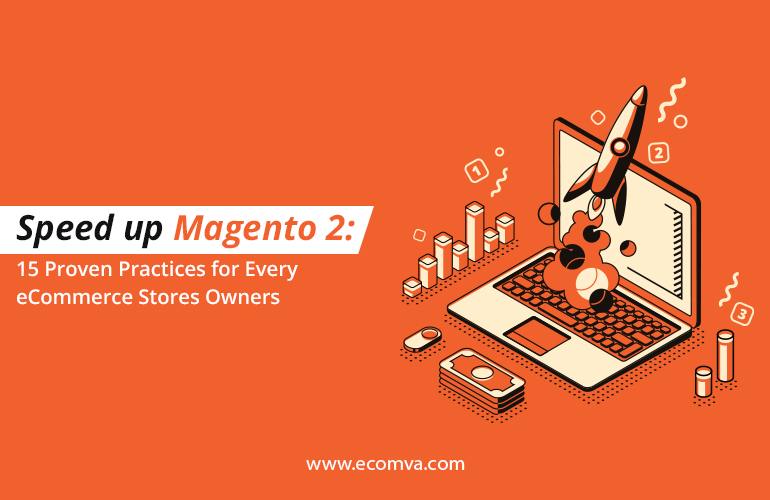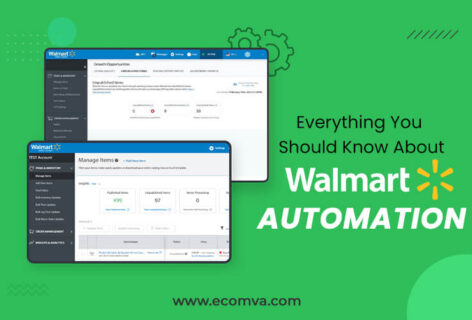Speed up Magento 2: 15 Proven Practices for eCommerce Stores Owner

Are you having the right performance for your Magento store? How do you measure the speed of your store? Do we have the right solutions for your issues?
Well, experienced Magento product store management services do have a wide range of strategies.
There are around 62% of Magento stores with atleast one vulnerability. Therefore, you need skilled and experienced experts to resolve the issues that store owners commonly ignore to gain better user engagement.
What is a Magento 2 store?
It is an open-source ecommerce platform that helps users to build stores hassle-free. The platform is straightforward, easy to use, and versatile to bring unique solutions. Therefore, it is a highly demanded platform due to its flexibility of integration and unique features that are helpful for store owners.
Some noteworthy features of the store are:
- Smooth integration of third-party tools for enhancing the store performance
- A wide range of themes can be customized as per brand reputation
- SEO-friendly solutions to provide better chances of ranking on search engines
- A large community that helps to get instant solutions for your queries
What are the reasons your Magento 2 store is slow?
You may have missed some essential elements of the website, affecting the speed of your adobe commerce Store Management. Some of the common issues are:
Issues with the hosting server
Sometimes the hosting server is far, affecting your Magento store’s speed. Therefore, it is better to have a hosting provider that is easily accessible and provides great features to the users.
Not updating the Magento store
There are chances that you do not have the latest version. This keeps your website outdated and away from the latest features and functionalities introduced with each update.
Too many third-party extensions
There are over 3600+ extensions available in the Magento marketplace. Unfortunately, most businesses suffer from integrating extensions that are not usable or have been unused for ages. These modules make your platform heavy and slow for the users.
Choosing a theme with challenging optimization
Most store owners with minimal experience choose a theme without checking its performance or capability of optimization. This increases the challenge of providing a personalized experience to the users and affects their journey in the store.
Heavy Media
We understand that you need to add quality media to your website, but if you haven’t optimized, it affects the user experience. When you deal with Magento Store Management, it is important to focus on the size of images and videos that play a massive role in the page loading speed.
What are the proven practices to speed up Magento 2 stores?
1. Get the latest version
It will help if you stay updated with the latest features in the market that gain users’ attention or make their journey seamless in the store. So, it is better to have the updated version to ensure your store has access to the security patches and upgrades.
2. Check third-party resources
Avoid integrating third-party resources unnecessarily, as it affects the website’s speed. Instead, it is better to know the store’s requirements and customers to integrate the essential tools and resources in your ecommerce store.
3. Optimize media
Some chances focusing just on the quality affects the page loading speed of the Magento store. Handling such ecommerce operations means optimizing the images, videos, and other media before adding them to the online store.
4. Fast hosting services
Ecommerce store has a wide range of hosting services that provide unique features and functionalities. Therefore, choosing fast hosting services for your business is essential to ensure it works perfectly for the users.
5. Limited extensions
With the help of Magento store management services, you can choose the required extensions for the business. This ensures that you have limitations in integrating extensions and avoid affecting the pade speed of the website.
6. Website content
Most of the time, people make their final decisions after reading the content on the ecommerce store. Therefore, it is essential to have optimized and SEO-friendly content on your Magento store that convinces users to make the final decision be it a purchase, subscription, or membership.
7. Enable caching
When you enable caching for your store, it boosts the page loading speed. The Varnish cache is an open-source application that helps to reduce the response time and consumption of network bandwidth for boosting store performance.
8. Minimal JS/CSS
The efficiency of the page load time is reduced if you merge the JavaScript and CSS files in a single file. The common process followed when you hire virtual assistant USA is as:
- Redirect to Admin Panel > Stores > Configuration > Advanced
- Click on Developer
- Reach the JavaScript Settings, set YES for:
Merge JavaScript files
Enable JavaScript bundling
Minify JavaScript files - Then, keep YES to Minify CSS files and Merge CSS files in the CSS setting.
9. Organize the database
Your ecommerce store stores many database logs that run your business smoothly. As your store grows, it will take up more space and becomes heavy. Cleaning the logs will reduce the latency and make the website responsive. Also, always take a website backup before this process to ensure no data loss.
10. Select the right theme
Magento has various collection of theme that matches business reputation. It requires a smart decision to explore the features and functionalities the themes offer. Use a theme that is well-coded and lightweight.
11. Focus on cookies
For most platforms, cookies are saved from the server on the user’s device. This is required to personalize the experience, as it is possible to remember past activities, user preferences, and authentication data.
12. Testing speed
Before deciding, you should know detailed insights about the website’s performance. It is important to check the speed on these sections:
- Homepage
- Product page
- Cart
- Category page
- Checkout page
13. Disable or remove Magento 2 modules
The modules added in the Magento store are often no longer used and occupy the storage. If you have experienced virtual assistant services, they will disable or remove the modules in Magento 2 store to keep everything clean.
14. Focus on Time To First Byte
It is a speed metric that will check the response time. The milliseconds used to respond to the browser request. Some of the methods to optimize this are:
- Caching in browsers
- Optimize server for heavy traffic
- Remove unused extensions
- Media compression
- Reduce web page sizes
15. Setup CDN
If not appropriately managed, the Content Delivery Network affects the customer experience. Configuring the CDN of the Magento 2 store will help to boost website speed. The procedure you can follow are:
- Redirect to Admin Panel > Stores > Settings > Configuration
- Choose Web from General
- Open the Base URLs sections
- Add the URL for the location that stores static files in Base URL for static view files
- Enter the URL of JS files in the Base URL for user media files
- Add the URL of the location in Secure Base URL for static view files
- Add the URL of JS files in the Secure Base URL for user media files
- Click on Save Config
What are the benefits of speed optimization in the Magento 2 store?
- Enhance user experience: Faster page load times lead to a better user experience for your customers, which can result in increased conversions and customer satisfaction.
- Better rankings: Search engines like Google prioritize websites that load quickly, so optimizing your Magento 2 store for speed can enhance your search engine rankings and generate more organic traffic to your website.
- Boosts revenue: Faster page load times can lead to increased sales, as customers are more likely to purchase if they can quickly and easily navigate your site and find the products they’re looking for.
- Reduce bounce rate: A slow website can lead to a high bounce rate, as users may become frustrated and leave your site before purchasing. Optimizing your Magento 2 store for speed can reduce your bounce rate and keep users on your site longer.
- Lower server costs: A fast website requires fewer server resources, which can help reduce your hosting costs and improve the overall performance of your Magento 2 store.
- Increase conversions: Faster page load times can increase conversions for businesses as customers are more likely to purchase on a site that loads quickly.
- Improves Scalability: A faster website can handle more traffic, making it more scalable and allowing you to accommodate more customers without compromising on site speed
The End Note!
Faster website speed can increase the likelihood of visitors converting into customers. For example, a one-second delay in page load time can result in a reduction in conversions. Therefore, optimizing your Magento 2 store’s speed can improve the chances of customers completing their purchases and increase your revenue.
It is better to have quality Magento product store management services to optimize your website speed with proven strategies and resources. Being in the market for longer, it is better to take expertise from those with the proper knowledge and who have worked on similar platforms.











